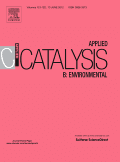
Applied Catalysis B-Environment and Energy
Scope & Guideline
Unveiling the science behind a sustainable future.
Introduction
Aims and Scopes
- Catalytic processes for energy conversion and storage:
Research related to catalysts that facilitate the conversion of renewable energy sources into usable fuel, including hydrogen production through electrolysis and CO2 reduction. - Environmental remediation technologies:
Studies focusing on the catalytic degradation of pollutants, including wastewater treatment and air purification, utilizing advanced oxidation processes and photocatalysis. - Sustainable synthesis pathways:
Innovative catalytic methods for the production of value-added chemicals from biomass and waste materials, emphasizing green chemistry principles. - Characterization and optimization of catalysts:
Research that explores the structure-activity relationships in catalytic materials, including the development of novel catalysts with enhanced performance and stability. - Interface engineering in catalysis:
Studies investigating the role of interfaces and electronic interactions in catalytic systems, particularly in enhancing charge transfer and reaction kinetics.
Trending and Emerging
- Photocatalytic CO2 reduction and hydrogen production:
Research on photocatalysts that utilize solar energy to convert CO2 into hydrocarbons or produce hydrogen is increasingly popular, reflecting a growing interest in sustainable energy solutions. - Electrocatalysis for energy conversion:
Studies exploring electrocatalytic processes, particularly for hydrogen evolution and CO2 reduction, are on the rise, highlighting the importance of electrochemical methods in energy sustainability. - Advanced oxidation processes for wastewater treatment:
Research on novel catalytic systems for the degradation of persistent organic pollutants using advanced oxidation processes is gaining prominence, driven by a need for effective environmental remediation. - Bimetallic and single-atom catalysts:
The development of bimetallic and single-atom catalysts that optimize active sites for enhanced catalytic performance is trending, indicating a shift towards precision in catalyst design. - Interface and defect engineering:
Research focusing on the engineering of catalyst interfaces and defects to enhance performance and stability is emerging as a critical area, reflecting the complexity of catalytic processes.
Declining or Waning
- Conventional metal catalysts for hydrocarbon processing:
Research on traditional metal catalysts for hydrocarbon reforming and cracking has decreased, possibly due to the rise of more sustainable and innovative catalytic approaches. - Single-use catalysts with limited reusability:
Studies focusing on catalysts that do not emphasize reusability or sustainability are becoming less prominent, as the field increasingly values longevity and environmental impact. - Basic catalytic mechanisms without practical applications:
There is a waning interest in purely theoretical studies that do not translate into practical applications or advancements in environmental or energy solutions. - Non-advanced oxidation processes for pollutant removal:
Research on older, less effective methods for pollutant degradation is decreasing as more efficient technologies are developed and prioritized in the literature. - Traditional zeolite applications without modifications:
The focus on conventional applications of zeolites without innovative modifications or hybridization with other materials is declining in favor of more versatile and enhanced catalytic systems.
Similar Journals

Catalysts
Elevating the Science of Catalysis through CollaborationCatalysts is a leading academic journal in the field of catalysis, published by MDPI since 2011 and well-regarded for its commitment to open access publishing. Based in Switzerland, this journal delivers innovative research and reviews that span various aspects of catalysis, from heterogeneous and homogeneous catalysis to the development of novel catalytic systems. With a commendable impact factor and a notable Q2 ranking in both Catalysis and Physical and Theoretical Chemistry categories, Catalysts plays a critical role in advancing the scientific discourse in these fields. The open-access model ensures that all research articles are readily accessible to researchers and professionals worldwide, fostering collaboration and accessibility to high-quality scientific literature. As the journal continues to publish cutting-edge studies up to its convergence in 2024, it remains an essential resource for anyone involved in catalysis research, from seasoned professionals to emerging scholars.
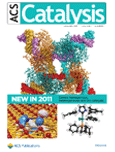
ACS Catalysis
Driving Excellence in Catalysis and ChemistryACS Catalysis, published by the American Chemical Society, stands as a premier journal in the field of catalysis, offering a vital platform for researchers, professionals, and students focused on advancing the science of catalysis and its applications. With an impressive impact factor placing it in the Q1 category for both Catalysis and Chemistry (miscellaneous), this journal has established itself as a leading source of high-quality research findings, currently ranking #21 out of 408 in General Chemistry and #9 out of 68 in Catalysis according to Scopus. Since its inception in 2011, ACS Catalysis has aimed to publish innovative research that addresses the critical challenges in catalytic processes, advancing our understanding of both fundamental and applied aspects of catalysis. With a commitment to promoting open scientific discourse, it serves a vital role for those interested in the latest methodologies, discoveries, and trends in this essential discipline. Based in Washington, DC, ACS Catalysis continues to uphold the highest standards of scholarship and collaboration within the vibrant community of chemists and engineers worldwide.
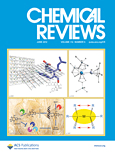
CHEMICAL REVIEWS
Your Gateway to Comprehensive Chemical Insights.Chemical Reviews, published by the American Chemical Society, is a leading journal in the field of chemistry, renowned for its comprehensive and authoritative reviews on a wide range of chemical topics. With its ISSN 0009-2665 and E-ISSN 1520-6890, this prestigious journal has maintained a remarkable trajectory since its inception in 1924, continuously contributing to advancements in the chemical sciences. As a Q1 journal in the Chemistry (miscellaneous) category, it stands at the forefront of research, boasting an impressive Scopus rank of #1 out of 408 in the field of General Chemistry, positioning it within the top 1% of the field. Chemical Reviews offers invaluable insights and serves as a critical resource for researchers, professionals, and students alike, facilitating knowledge exchange and fostering innovation in chemistry. While currently not open access, it remains a vital component of the scientific community, gathering an extensive readership base eager for the latest developments, methodologies, and theoretical frameworks in this dynamic discipline.

TRANSACTIONS OF TIANJIN UNIVERSITY
Championing high-quality contributions in a dynamic academic landscape.TRANSACTIONS OF TIANJIN UNIVERSITY, published by SpringerNature, is a premier journal in the field of multidisciplinary research, boasting an impressive Q1 ranking and placing within the top 93rd percentile of its category according to Scopus. With an ISSN of 1006-4982 and E-ISSN of 1995-8196, this journal facilitates insightful and innovative contributions that span various disciplines, making it a vital resource for academics and professionals alike. Established in 2004, the journal continues to thrive with a commitment to advancing knowledge and fostering collaboration in scientific inquiry. TRANSACTIONS OF TIANJIN UNIVERSITY aligns with global research trends and offers a platform for the dissemination of high-quality research findings, promoting interdisciplinary approaches to solving complex problems. Located in China, its influence extends well beyond national borders, appealing to a diverse readership eager to explore the latest advancements and discussions in the multidisciplinary arena.
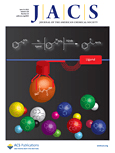
Journal of the American Chemical Society
Unveiling Breakthroughs in Chemistry Since 1879Journal of the American Chemical Society (JACS), published by the American Chemical Society, stands as a pivotal publication in the field of chemistry, facilitating the dissemination of significant research findings since its inception in 1879. With an impressive impact factor and esteemed rankings placing it in the Q1 quartile across various categories—including Biochemistry, Catalysis, and Colloid and Surface Chemistry—JACS continues to serve as a vital resource for scientists, professionals, and students alike. Researchers choose JACS for its rigorous peer-review process, ensuring high-quality content that shapes the landscape of modern chemistry. The journal's extensive scope encompasses pivotal advancements and innovative methodologies, reflecting the evolving dynamics of chemical research. With access options being traditional subscription-based, it remains crucial for institutions and individuals to engage with its latest issues to stay at the forefront of chemical science advancement.
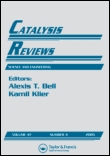
CATALYSIS REVIEWS-SCIENCE AND ENGINEERING
Unleashing Innovation in Catalysis and EngineeringCATALYSIS REVIEWS - SCIENCE AND ENGINEERING, published by Taylor & Francis Inc, is a leading journal in the field of catalysis, providing a vital platform for the dissemination of rigorous research and comprehensive reviews from 1968 to the present. With an impressive Q1 ranking in multiple categories, including Catalysis and Chemistry, this journal stands out as an essential resource for professionals, researchers, and students alike. Its high impact factor and esteemed Scopus ranks — including 3rd in Chemical Engineering: Process Chemistry and Technology — highlight the journal's influence and prestige within the scientific community. While primarily a subscription-based publication, the journal’s commitment to advancing the understanding of catalytic processes continues to foster innovation in various industrial applications, making it indispensable for anyone engaged in the fields of chemical engineering and applied chemistry.

Green Synthesis and Catalysis
Advancing Sustainable Innovation in ChemistryGreen Synthesis and Catalysis is a pioneering Open Access journal dedicated to advancing the fields of biotechnology and catalysis, published by KEAI PUBLISHING LTD since 2020. With an impressive Q1 ranking in both Biotechnology and Catalysis and notable Scopus rankings placing it in the top echelons of its categories, this journal serves as a critical platform for researchers and professionals dedicated to innovative and sustainable chemical practices. The journal addresses the pressing need for environmentally-friendly synthesis methods and efficient catalytic processes that align with global sustainability goals. Based in Beijing, China, it offers a wealth of peer-reviewed articles, reviews, and cutting-edge research focusing on green technologies and practices. Academics and practitioners alike can benefit from the journal's wide-ranging scope that promises to push the boundaries of current scientific understanding and application. Engage with the latest discoveries by accessing the journal’s enriching content online, and contribute to the transformative dialogue surrounding sustainable synthesis and catalytic innovation.
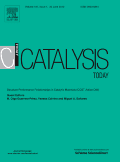
CATALYSIS TODAY
Pioneering Discoveries in Catalysis TodayCATALYSIS TODAY is an esteemed journal published by Elsevier, specializing in the vibrant field of catalysis and its applications in chemical engineering. With the ISSN 0920-5861 and E-ISSN 1873-4308, it has continually contributed valuable research since its inception in 1987 and is set to maintain its influence through 2025. Hailing from the Netherlands, this journal stands out with a notable Q2 quartile ranking in catalysis and a Q1 ranking in miscellaneous chemistry as of 2023, reflecting its rigorous selection of impactful and innovative studies. Its Scopus rankings further substantiate its excellence, highlighting its position in the 89th percentile of general chemistry and 77th percentile in catalysis. CATALYSIS TODAY aims to disseminate cutting-edge findings, fostering exchange among researchers, professionals, and students in the catalysis community. By presenting high-quality research articles, reviews, and case studies, it plays a pivotal role in advancing knowledge and sparking discussions that drive future developments in the field.
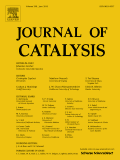
JOURNAL OF CATALYSIS
Pioneering Discoveries in Catalysis and ChemistryJOURNAL OF CATALYSIS, published by Academic Press Inc, Elsevier Science, is a premier peer-reviewed journal that has been at the forefront of research in catalysis since its inception in 1962. With an impressive impact factor and ranking in the top quartiles of both catalysis and physical and theoretical chemistry, the journal is highly regarded, currently holding the distinction of Q1 in both fields. The journal serves as a critical platform for disseminating groundbreaking research, innovative methodologies, and theoretical advancements, making it essential reading for researchers, professionals, and students alike. Although it does not operate under an open-access model, its robust content is accessible through institutional subscriptions, ensuring that significant findings in catalysis and related fields reach a wide audience. With convergence years extending to 2024, JOURNAL OF CATALYSIS continues to shape the discourse in catalysis and chemical engineering, encouraging scholarly exchange and collaboration worldwide.

Catalysis in Industry
Catalyzing knowledge for industrial breakthroughs.Catalysis in Industry, published by MAIK NAUKA-INTERPERIODICA, is a pivotal journal in the field of chemical engineering and catalysis. With its ISSN 2070-0504 and E-ISSN 2070-0555, this journal has been dedicated to advancing the understanding and application of catalytic processes in industrial settings since its inception in 2010. Despite its Q4 ranking in the category of Catalysis as of 2023 and a Scopus rank of #61/68, the journal serves as a valuable platform for researchers and practitioners to disseminate innovative ideas and findings that contribute to the evolution of catalysis technology. Published in Russia, Catalysis in Industry aims to bridge the gap between academic research and industrial practice, providing Open Access options to facilitate widespread accessibility and encourage a collaborative approach to chemical engineering challenges. As the industry grapples with the demand for sustainable solutions and efficient processes, this journal remains a critical resource for the academic community, aspiring professionals, and students eager to deepen their knowledge in catalytic applications.